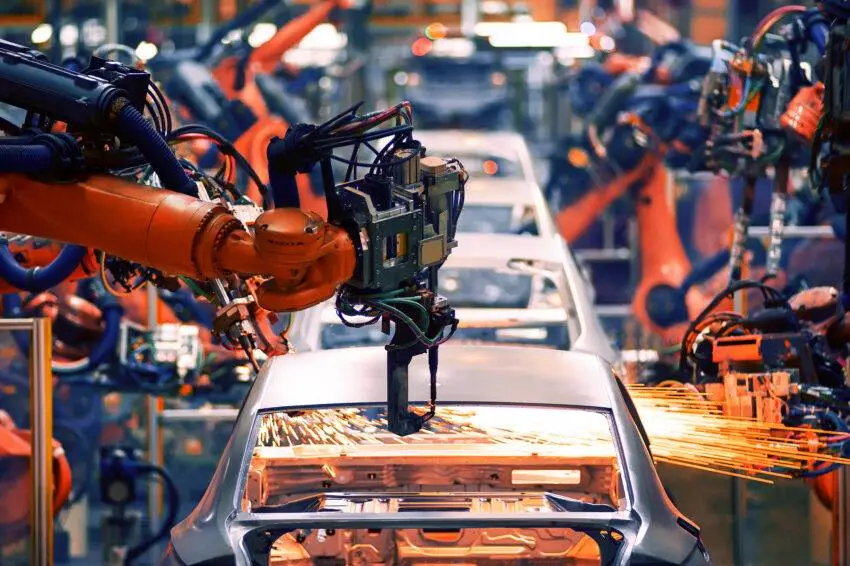Stellantis has issued a stark warning about the future of its UK factories. The company is threatening closures if the government doesn’t provide more substantial support for electric vehicles.
This warning comes from the backdrop of mounting pressures and stringent zero-emission quotas imposed on manufacturers.
The Call for Government Support
Davino, a spokesperson for Stellantis, called for a reduction in the stringent zero-emission vehicle quotas currently mandated for manufacturers. Speaking at the UK’s Society of Motor Manufacturers and Traders annual summit in London, she emphasized the dire consequences for the UK electric vehicle market if government support is not forthcoming.
‘In the UK, there will be consequences. Stellantis UK does not stop, but Stellantis production in the UK could stop,’ she stated. The potential closure of these factories, which employ 2,500 people in Cheshire and Bedfordshire, would end over a century of vehicle production in the UK under the Vauxhall brand.
Heavy Investments at Stake
Stellantis, formed from the merger of Peugeot-Citroën and Fiat-Chrysler-Jeep, has invested heavily in the UK. Last year, they converted Ellesmere Port to Europe’s first all-electric automotive plant.
Davino warned that while the shutdown scenario is not yet on the agenda, it remains a possibility. She noted that the company has already reduced its supply of petrol cars to the UK by at least 14% to avoid hefty fines under the zero-emission vehicle mandate.
The Burden of Zero-Emission Quotas
The current quota system requires manufacturers to ensure that 22% of their vehicles are battery electric this year. This quota will rise to 28% next year and accelerate to 80% by 2030.
Davino described the market as ‘very aggressive,’ with pressure on margins exacerbated by the high cost of electric vehicle production and stringent volume targets. Stellantis, which sells about 13% of its cars as battery-electric, has committed to avoiding zero-emission mandate fines, necessitating a reduction in market share to meet quotas.
This approach could lead to a 14% cut in UK vehicle volumes, equating to a two-percentage point reduction in market share.
Frustrations with Government Inaction
Stellantis’s frustration stems from the lack of government support despite its significant commitment to electric vehicle production in the UK. Group CEO Carlos Tavares has unsuccessfully lobbied Conservative ministers for mitigations or exemptions from the zero-emission mandates.
To prevent the potential closure of the UK factories, Davino emphasised the need for immediate incentives for private buyers, including cash and fiscal support, to stimulate demand across the broader market, not just for premium electric cars.
The Rapid Trajectory of Quotas
Davino criticised the rapid trajectory of zero-emission quotas, which outpace the current market take-up rate of 16%. She concluded with a call for the new UK government to foster an environment that promotes clean and green mobility for all.
She warned against a ‘race to the bottom’ in corporate and human rights standards and advocated for equitable access to sustainable transportation.
Potential Impact on the Workforce
The potential closure of the factories would affect 2,500 employees directly. The end of over a century of vehicle production in the UK under the Vauxhall brand would also be a significant blow to the local economy.
This highlights the broader implications of the dispute between Stellantis and the UK government.
A Plea for Action
Stellantis is making it clear that immediate government intervention is crucial. Without it, the future of electric vehicle production in the UK looks increasingly uncertain.
Conclusion
Stellantis’s warnings highlight the urgent need for government intervention to support the electric vehicle sector.
The potential closures underscore the broader challenges facing the automotive market in the UK.
In summary, Stellantis’s recent warnings about potential factory closures serve as a critical reminder of the urgent need for government intervention and support in the electric vehicle sector.
The company’s call for more substantial incentives and a reassessment of the stringent zero-emission quotas underscores the broader challenges facing the UK’s automotive industry. Immediate action is necessary to secure the future of vehicle production and ensure a sustainable transition to electric mobility.

